If you’re searching for answers to what crippling depression really is or seeking ways to navigate through its crushing weight, you’ve come to the right place. Crippling depression is more than just a bout of sadness; it is a mental illness, a heavy blanket of despair that can drastically impair daily functioning and quality of life.
This article not only explores the depths of this severe form of depression but also shares a personal journey of how, for me, meditation became a transformative tool in overcoming the immobilizing grip of severe depression. Keep reading to understand more about major depression, treatments, and self-help strategies that could serve as a beacon of hope to reclaim your life.
The Day I Realized I Have Crippling Depression
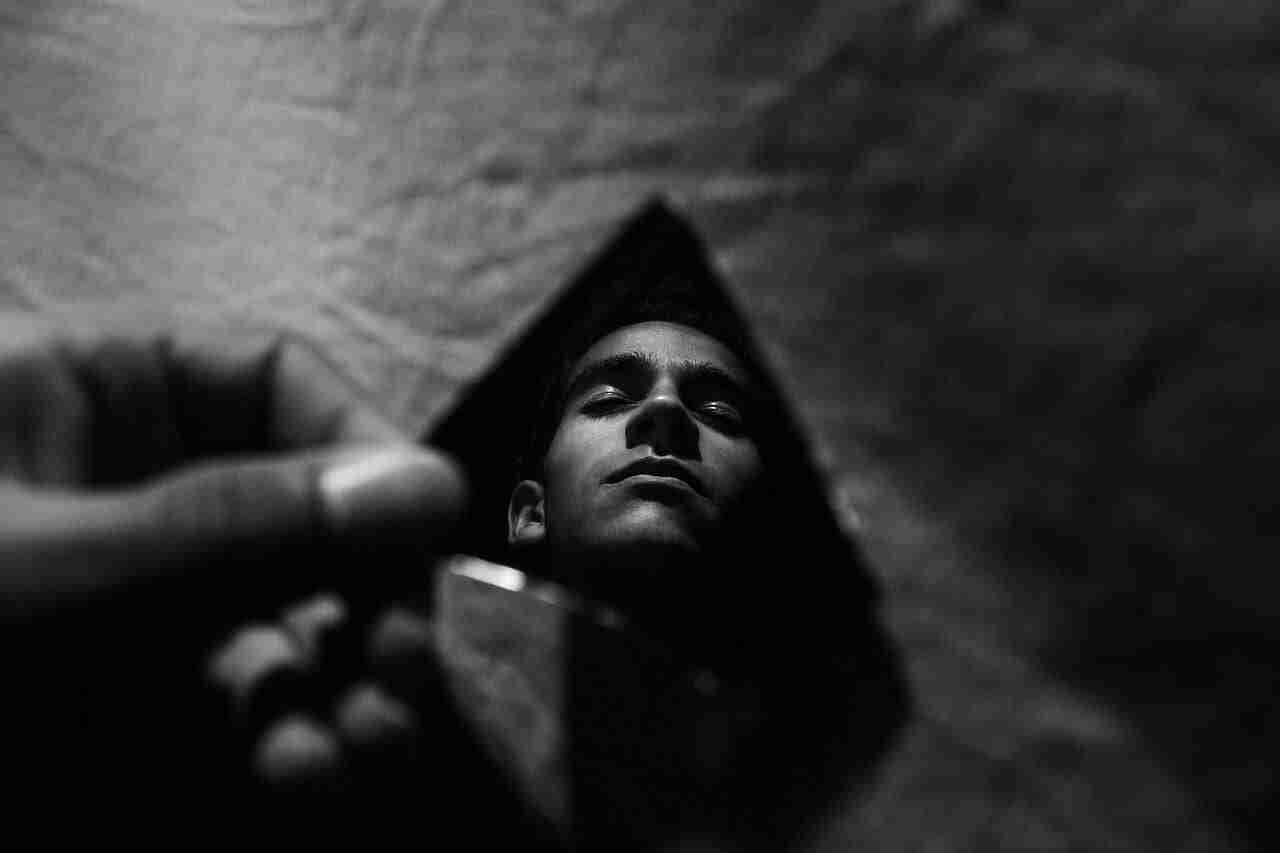
It was a sunny afternoon in late summer. I remember staring out the window at the golden rays of sun peeking through the leaves on the massive oak tree outside my window.
I remember knowing inherently that it was a beautiful day and that I should feel happy, because I had historically found joy in the beauty of nature. Yet, I wasn’t happy. I was numb, and the lowest form of it. Effectively, I was dead inside.
I was drowning in an ocean of internal despair. Sunken so low that there was nothing deeper, I was dragging the bottom. Joy was absent from activities I once loved (like watching leaves flutter in the wind on late summer days). Every thought seemed as challenging as climbing a mountain.
I was ensnared by crippling depression, making even the simplest desires appear insurmountable. Life felt like a relentless storm of impending doom. My mind was a prison, shackled by the chains of my own thoughts, a cacophony of voices telling me I was worthless, unlovable, and going nowhere.
Like many people who experience severe depression, I couldn’t pinpoint any real reason for my sadness. All I knew was it seemed to stem from a chronic empty, hopeless feeling, and it was exhausting. I was beyond tired. Tired of seeing beautiful days around me and yet always remaining joyless.
In that moment of lifeless staring, something came to me: Do I really want to continue this way? Why would anyone who is as unhappy as me choose to keep living like this? Are these my choices: a life sentence of despair or a voluntary exit from the world? Shit.
I didn’t want to kill myself and had never thought about it before. But when my mind posed the question this way, there seemed to be only one answer. I knew that I definitely didn’t want to live another 50 years in my current state. Living “like this” was a definite no, so leaving the world was an automatic yes, it seemed. Like it wasn’t even a choice.
The idea of ending it felt somewhat scary, but more so inconvenient. As if it was one more thing my depressed self didn’t want to do but had to find the willpower to figure out and accomplish. The choice between enduring a life filled with such profound sadness or seeking the silence of oblivion was a lose/lose, but seemed like it was out of my control, like everything else in my life.
I sat pondering how I might actually go about this. No potential options felt appealing. Then, suddenly, from nowhere, a little spark ignited within me. The spark was a thought that I was able to notice and actually grab on to- there were people out there who were happy, functioned normally, and didn’t perpetually feel doomed.
I knew this was true because I knew people like that. Oh my god, I thought, how do they do that? And if they can do it, why can’t I? I never was one to be told I couldn’t do something. If it was possible for anyone, it was possible for me. So, in an instant, I became determined to figure out how to be one of those people. There was no way I was going to live another 50 years with severe depression, but I also wasn’t going to let it convince me I had no other choice.
Before I even realized what I had just decided to do, the mental clouds parted. This might sound weird, but it felt like I was receiving a cosmic, Divine message telling me to meditate. It said that meditation would help me find some semblance of peace. So, I listened. Right where I had sat virtually pulseless only minutes before, I closed my eyes and tried to quiet my head.
That first flash of meditation lasted about five seconds. Then my eyes spontaneous shot open at the same moment my mind told me this would never work. However, in those fleeting seconds I had managed one deep, full breath, and it washed over me a wave of calm I hadn’t felt in years. That brief sense of calm was compelling enough for me to stick with it.
Meditation Saved Me From My Crippling Depression
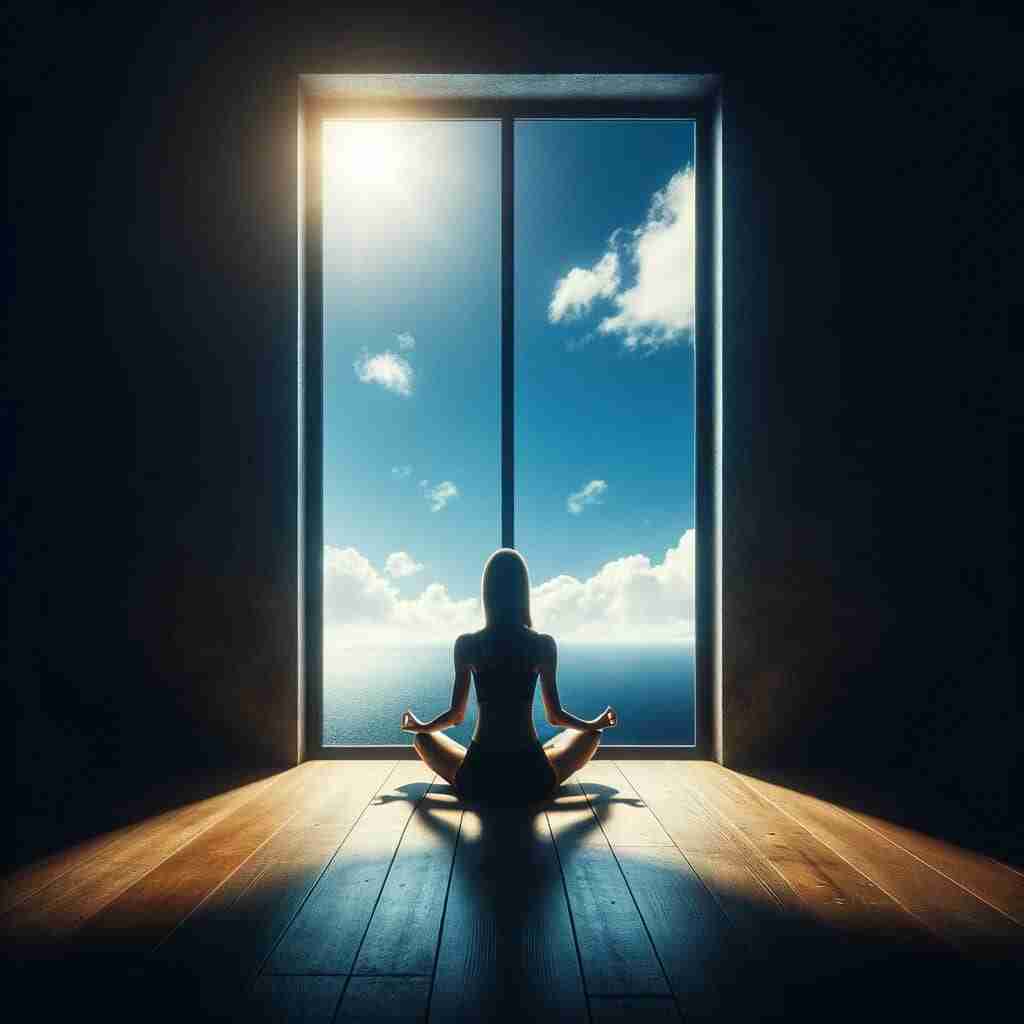
At first, meditation felt like trying to hold back the tide with my bare hands. My thoughts refused to be quieted, raging against the stillness I so desperately sought. But I persisted, day after day, driven by the fear of what lay on the other side of failure.
And slowly (but perceptibly), the storm began to calm. The chains around my mind loosened, giving me my first real breaths of freedom in what felt like eons. This newfound peace was fragile, a delicate bloom in a field of thorns. Yet, it was real.
Meditation taught me to observe my thoughts without judgment and to recognize the transient nature of my emotions. I learned to sit with my pain, to accept it, and ultimately, to transcend it. The voices that once told me life wasn’t worth continuing transformed into a stronger, more compassionate inner voice that spoke of hope and resilience.
With each passing day, the world began to brighten. Colors returned, painting my days with the hues of possibility. One day, I was walking down the hallway on my way to a menial task, and I noticed myself whistling. I stopped dead in my tracks, alarmed at what had just registered. I was happy enough to be whistling for no real reason. That’s when it really sunk in that my meditation practice was working to improve my mental health in meaningful ways.
Meditation did not offer me a quick fix, mind you, but rather a path to healing my crippling mental illness. It’s been and continues to be a journey that demands patience and perseverance, but continually shows me that life is a gift, every moment an opportunity to grow, to love, and to live fully.
I stand now on the other side of despair, not as a survivor but as a testament to the transformative power of the human spirit. My journey through the depths of depression to the heights of healing is a beacon of hope for those still caught in the storm.
Meditation served as my lifeboat. It was challenging initially, yet it began yielding results almost instantly. I hope my story is a reminder that even in our darkest hour, there is a way out, a path to a life filled with joy, purpose, and peace. That it is a call to hold on and fight another day, for the dawn is always brightest after the darkest night.
Understanding Crippling Depression

Debilitating depression, often described as a severe form of depression or major depressive disorder, is like a heavy chain wrapped around your mind and body. It hinders your ability to work, manage home life, or maintain social relationships.
Severe depression, also known as clinical depression, can last for a few weeks to months, and in some cases, it can persist as a lifelong struggle with depression or major depressive episodes. Around 7.1% of U.S. adults experience at least one episode of major depression in their life. Major depressive disorder is more prevalent in women than in men, and rates are higher among young adults between the ages of 18 and 29.
Clinical depression is not the only persistent depressive disorder out there. There are various forms of depression, each with its own severity and impact on daily life, including bipolar disorder and seasonal affective disorder, which are two of the many mental disorders.
Different types of depression include:
Persistent depressive disorder, also known as dysthymia, which is less severe but often lasts longer than other types
Major depressive disorder, which is characterized by severe episodes of depression that significantly impact daily functioning
Crippling depression, which is often used interchangeably with severe episodes of major depressive disorder and severely limits an individual’s basic daily functioning.
Identifying Symptoms and Warning Signs

Grasping the symptoms of depression is vital, as it can manifest in emotional, physical, and cognitive signs. Early recognition of these symptoms can help you initiate your journey to recovery or seek help from a mental health professional.
Emotional Symptoms
Emotionally, depression can feel like a constant battle. You may experience:
Persistent feelings of sadness
Irritability
Anger
A loss of interest in previously enjoyed activities
Persistent thoughts of hopelessness or fear
These crippling depression symptoms are common in many other mental health conditions as well.
Physical Symptoms
Physically, depression can lead to:
fatigue
sleep disturbances
changes in appetite
digestive issues
vague aches and pains, such as chronic joint, limb, or back pain
These physical symptoms can prolong the duration of a depressed mood and increase the risk of relapse.
Cognitive Symptoms
Cognitively, individuals with crippling depression may struggle with memory problems, difficulty concentrating, and indecisiveness. These severe symptoms can hinder daily functioning and productivity, causing significant difficulties with work and everyday activities.
Seeking Professional Help
Symptom recognition is merely the initial step. Pursuing professional help is essential in managing clinical depression. Regrettably, a significant proportion of adults suffering from major depressive disorder remain untreated.
If you suspect you’re experiencing symptoms of depression, it’s essential to reach out to a licensed mental health professional for a proper diagnosis and treatment.
Finding the Right Therapist
Locating a suitable therapist might seem intimidating, yet it is a vital step in your healing journey. You might need to consult with multiple mental health professionals before finding an appropriate match. Research potential therapists online, check their credentials, and don’t be afraid to take advantage of any free introductory sessions they offer. Talk therapy is widely available today and is often a great place to start.
Remember, you’re not alone, and there are many resources available to help you on your journey to recovery from crippling or clinical depression.
Treatment Approaches for Crippling Depression
There are various treatment approaches available for crippling depression, including psychotherapy, medication, and alternative therapies.
Although the journey might be tough, these treatments can pave a path toward reclaiming your life and overcoming depression.
Psychotherapy
Psychotherapy, particularly cognitive-behavioral therapy (CBT), interpersonal therapy (IPT), and talk therapy, can be highly effective in treating depression. These therapies actively involve you in:
Changing negative thinking patterns and behaviors to reduce symptoms of depression
Understanding the underlying causes of your depression
Developing coping strategies
Medication
In some cases, antidepressant medications can help manage symptoms of crippling or clinical depression. The most common types are Selective Serotonin Reuptake Inhibitors (SSRIs) and Serotonin-Norepinephrine Reuptake Inhibitors (SNRIs). However, it’s important to remember that medications are typically most effective when used in conjunction with therapy.
Alternative Therapies
As discussed above, meditation is a powerful alternative therapy that can help manage depression by reducing stress and fostering emotional health. But for some individuals, other alternative therapies such as Ketamine infusion therapy, Transcranial Magnetic Stimulation (TMS), and Vagus Nerve Stimulation (VNS) can also be beneficial. These treatments are particularly useful for those with severe or treatment-resistant depression.
Developing a Support System
Beyond therapy and medication, building a strong support system is extremely helpful in managing depression. This could comprise friends, family members, therapists, and support groups.
Family, Friends, & Support Groups
Your family and friends can play a critical role in your recovery. Their understanding and support can reduce feelings of isolation and provide much-needed emotional support.
Joining a support group can be incredibly beneficial. These groups provide a safe and non-judgmental environment for you to express your feelings. They also offer a sense of community and mutual understanding, as all members have experienced the challenges of depression.
Sharing experiences can lead to the development of new coping strategies and insights into managing depression. Remember, reaching out for help is a sign of strength, not weakness.
Online Resources
In today’s digital age, there’s a wealth of mental health resources available for those struggling with depression and mental health disorders. These include comprehensive information on mental health conditions, online support groups, and crisis intervention services.
Utilizing these resources can provide additional support and information on substance abuse, helping you navigate your journey to recovery.
Want to learn even more about my personal journey? Check out our YouTube Channel for an in-person interview.
More Self-Help Strategies for Managing Crippling Depression

In addition to meditation, professional help, and a strong support system, numerous self-help strategies can be utilized to manage depression. Incorporating these strategies into your daily life can help you regain control and boost your mental health.
- Establishing a daily routine can provide stability and contribute to your physical health and mental well-being. This could mean waking up and eating breakfast at the same time each day, or setting achievable goals to structure your day.
- Regular physical activity, such as walking, stretching, or practicing yoga, can help alleviate depressive symptoms and improve your mood. It’s important to start slowly and gradually build up the intensity of your workouts.
- Practicing self-compassion (something readily cultivated through meditation). This means treating yourself with kindness and understanding when confronted with personal failings, rather than succumbing to harsh self-judgment. It also means forgiving yourself and understanding that every new day is an opportunity for progress.
Be Devoted to Your Mental Health

In conclusion, while crippling depression is a daunting and debilitating condition, recovery is possible. The number one thing you must do to heal from any depressive disorder is be devoted to your mental health and wellbeing.
With commitment and self-compassion, you can navigate the journey to reclaim your life. Remember, it’s okay to ask for help, and you are never alone on this road. With every step forward, no matter how small, you are making progress.
Have you ever experienced severe depression?
How did you deal with it?
Tell us about your experience in the comment section.

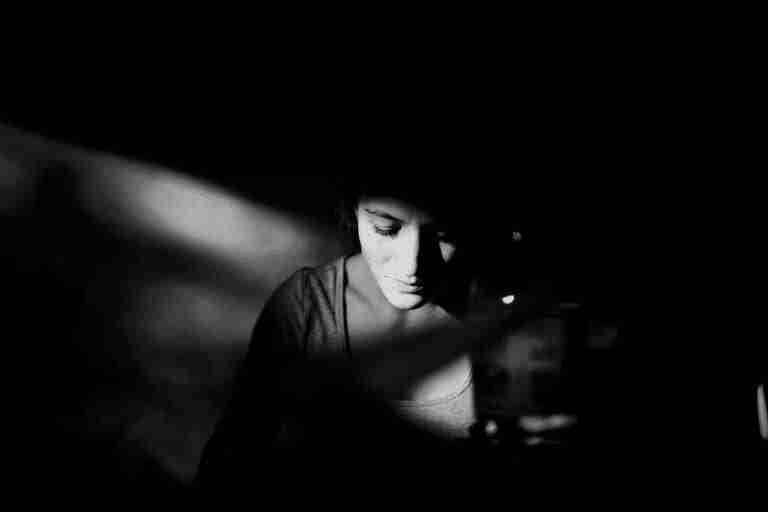

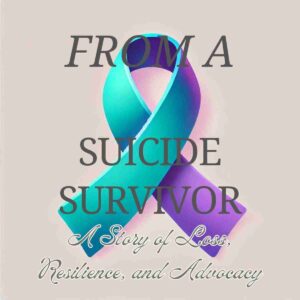










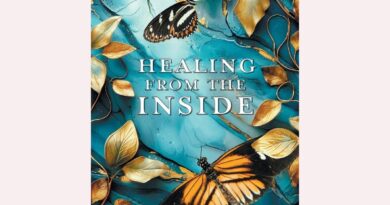












What a wonderful and informative article about depression and mental health. I’ve been thinking about attempting to meditate but didn’t know if it was for me- this article makes me want to try it more!
Thank you for reading and leaving a comment! We are glad Lia’s experience with meditation inspired you!
Such a powerful testimony! Thank you for the courage in sharing your story.
Thank you for reading and leaving a comment! We are so glad the story resonated with you.